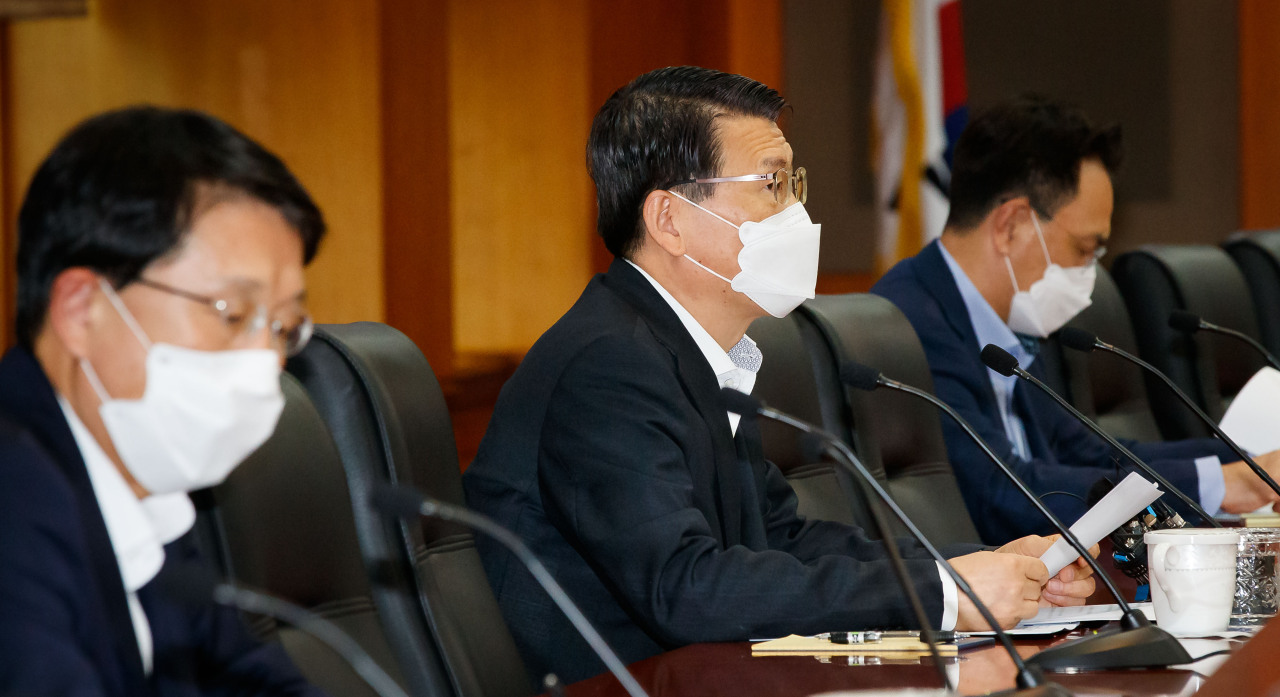 |
FSC Chairman Eun Sung-soo (second from left) speak at a meeting with CEOs of Korean securities brokerage houses at the headquarters of Korea Financial Investment Association in Seoul Thursday. (FSC) |
South Korea’s top financial regulator said Thursday its temporary ban on short-selling activities of all listed Korean shares will be extended to March 2021, immediately after the current six-month restriction expires in September.
The Financial Services Commission’s decision is meant to keep the stock market volatility at bay as the impact of the coronavirus still persists across the nation. The decision was made as FSC collected written agreements from its commissioners after the market’s close Thursday.
The FSC explained that the ban on short selling comes amid financial aids to cope with COVID-19, along with regulatory reliefs for financial institutions and debt service suspension.
Under the measure, any form of short selling activities, including legal, will be prohibited on domestic bourses Kospi, Kosdaq and Konex. Market makers will be exempt from the measure when adding liquidity to stabilize the price of a security.
The FSC first introduced a temporary short-selling ban in March, as the pandemic impact rattled the stock market.
During the extended temporary ban, the FSC vowed to draw up measures to toughen penalty on illegal short selling and make short selling more accessible to retail investors.
Short sellers in stock market take profit from the difference of the short seller’s sell price and buy price. Anticipating a fall in the stock price, a short seller will borrow shares and sell them. Once the price drops, a short seller will buy the same amount of shares at a lower price and return the shares to the lender.
Korean financial authorities consider naked short selling -- shorting before or without borrowing shares -- illegal, while taking a short position after borrowing the shares is partially allowed.
The setting, however, has often been met with a public outcry, because retail stock investors blamed short sellers -- mostly nonindividuals -- for an abrupt stock price fall.
Riding on the heavy influx of individual investors, Korea’s stock market swiftly recovered. Since Korea employed a shorting ban on March 13, the main bourse Kospi has jumped 32.3 percent until Thursday. The development bourse Kosdaq soared 59.6 percent.
By Son Ji-hyoung (
consnow@heraldcorp.com)








